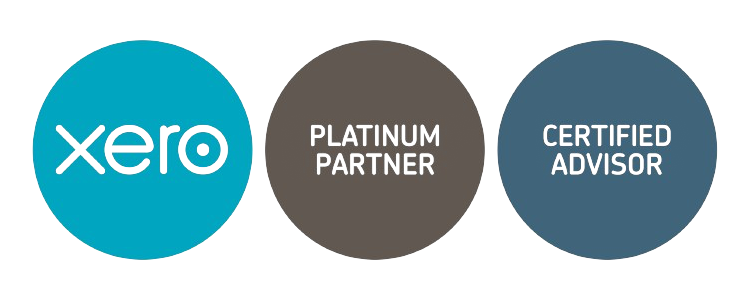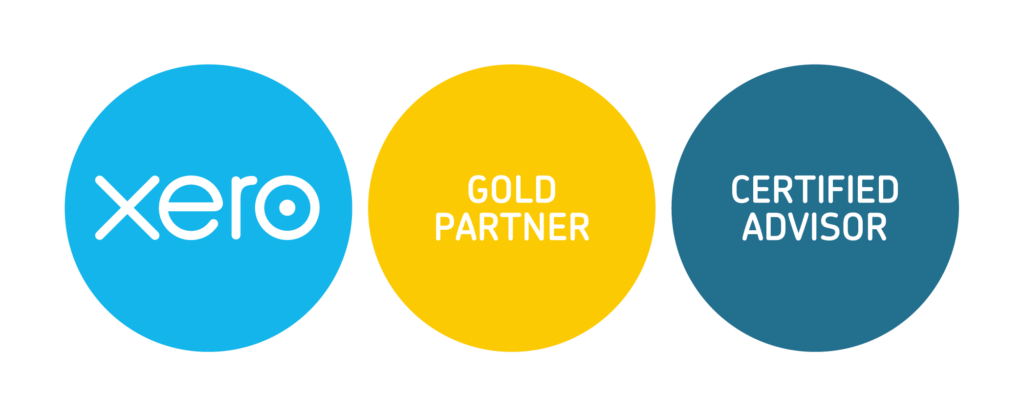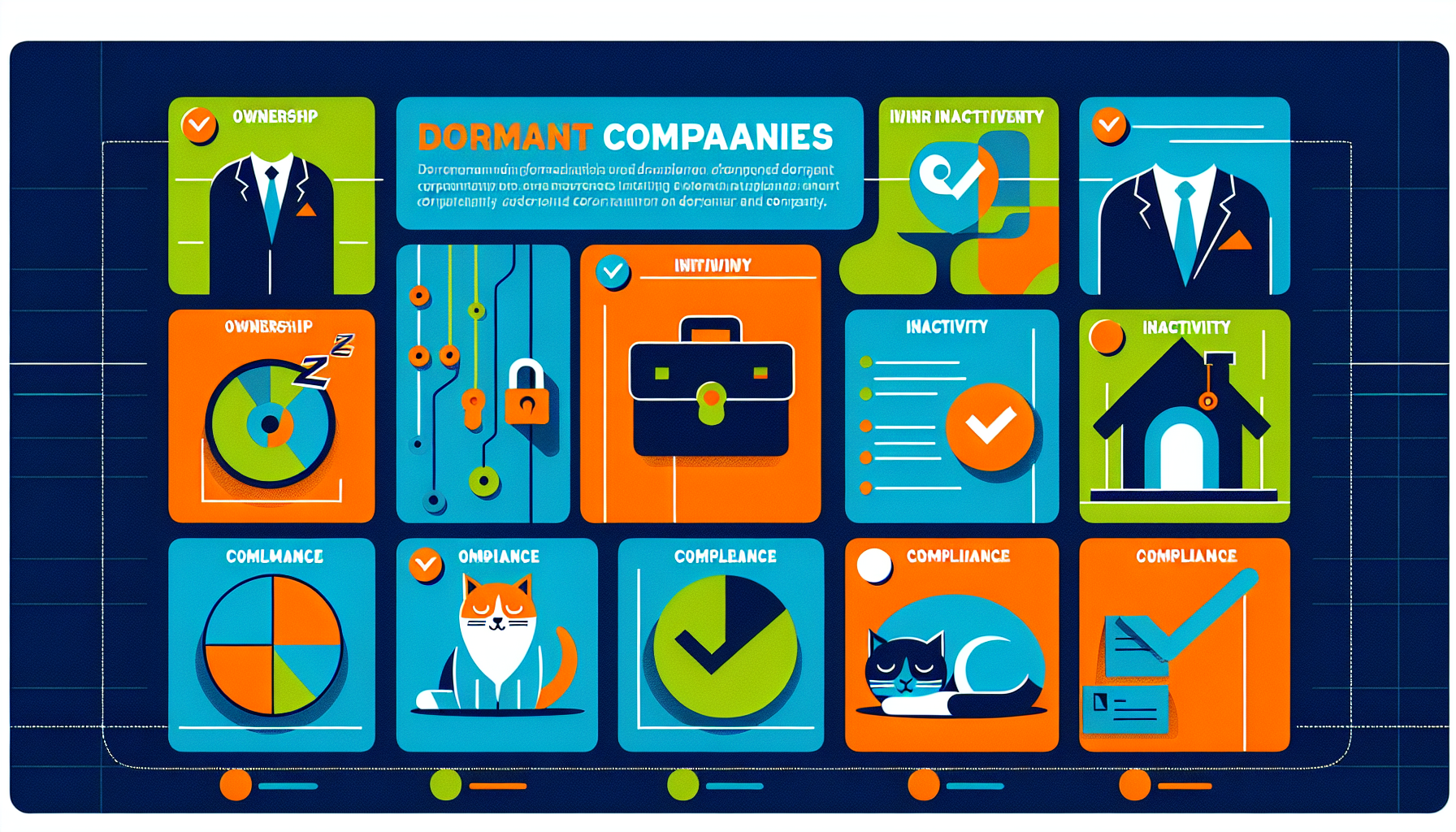CFO GROUP INTEGRATED SERVICES
Dormant Companies: Does a Dormant Company Need to File a Tax Return?
CFO Group • October 17, 2024
Does a dormant company need to file a tax return? Yes, even if a company is not actively conducting any business or generating income, there are still specific tax filing requirements it must adhere to. This article will explain why dormant companies need to file tax returns, the nuances involved, and what steps you need to take to ensure compliance.
Key Takeaways
- Dormant companies in Singapore must file tax returns, typically a nil return, to avoid penalties and maintain compliance with ACRA and IRAS regulations.
- ACRA and IRAS define dormant companies slightly differently, with ACRA focusing on accounting transactions and IRAS on business activities or income generation.
- Dormant companies can benefit from certain exemptions and waivers related to filing requirements, which can reduce administrative burdens while maintaining compliance.
Dormant Companies: Does a Dormant Company Need to File a Tax Return?
Navigating the world of dormant companies can be confusing, especially when it comes to tax obligations. So, does a dormant company need to file a tax return? The short answer is yes, but there are nuances to consider. A dormant company, by definition, is one that has not conducted any business or generated income throughout the entire basis period. This means no trading activities and no income for a specific financial period.
Navigating tax obligations is essential for dormant companies in Singapore. Despite inactivity, these companies must adhere to specific filing requirements to avoid penalties or non-compliance with regulatory bodies like ACRA and IRAS, ensuring they remain in good standing and preserve their legal status.
The requirements for filing taxes differ for a dormant company compared to an active one. While active companies must report all income and expenses, a dormant company may only need to submit a nil tax return, indicating no income. The specifics of these requirements depend on definitions set by regulatory bodies, which we’ll explore in the following sections.
Introduction
Maintaining a dormant company in Singapore can offer several strategic advantages. For instance, it allows you to preserve your company’s established reputation and intellectual property. This can be particularly beneficial if you plan to resume business activities in the future. The ability to safeguard your brand name and reputation from potential misuse is another significant benefit.
However, understanding tax obligations is crucial for dormant companies operating within Singapore’s regulatory framework. This guide provides comprehensive information on dormant companies in Singapore, helping you navigate the complexities of maintaining or dissolving such entities.
This guide aims to clarify the responsibilities, benefits, and processes associated with managing a dormant company.
Understanding Dormant Companies
A dormant company is essentially a business entity that has ceased all trading activities and does not generate any income. In Singapore, both ACRA and IRAS play crucial roles in regulating dormant companies, but they have slightly different definitions and requirements. Understanding these differences is key to ensuring compliance and leveraging the benefits of maintaining a dormant company digital service.
ACRA and IRAS definitions of dormant companies share common ground but also have distinct criteria. ACRA focuses on the absence of accounting transactions, while IRAS emphasizes the lack of business activities or income for a continuous period. The following subsections will delve into these definitions in more detail, helping you understand what makes a company dormant under each regulatory body.
ACRA Definition of Dormant Companies
ACRA defines a dormant company as one that has no accounting transactions during a financial year, except for specific administrative activities like paying filing fees or maintaining a registered office. This means that the company has not been involved in any trading or business activities. Additionally, for a company to be classified as dormant by ACRA, it must not be a listed company, have assets not exceeding S$500,000, and not be a subsidiary of a listed company.
Compliance with ACRA’s definition is essential. Meeting these criteria allows a company to benefit from exemptions and reduced statutory obligations. Nonetheless, dormant companies must adhere to specific requirements to maintain their status, highlighting the importance of following ACRA’s guidelines.
IRAS Definition of Dormant Companies
IRAS defines a dormant company as one that has not conducted any business activities or earned income for over 12 months. Under IRAS standards, a company is classified as dormant in the Year of Assessment when there are no business activities or income earned in the previous year. This means that even if the company has processed some expense payments, it can still be considered dormant as long as it has not generated any revenue.
The parameters for declaring a company dormant are reviewed by both IRAS and ACRA. Comprehending IRAS’s definition ensures a dormant company meets all regulatory requirements and can take advantage of potential tax exemptions or waivers.
Filing Requirements for Dormant Companies
Even if a company is dormant, it must still adhere to certain filing requirements to remain compliant with Singapore regulations. These requirements may vary based on definitions provided by ACRA and IRAS, but they generally include the submission of annual and income tax returns. Adhering to these requirements is critical to avoid penalties and preserve the company’s legal status.
Dormant companies must file annual returns within seven months from the end of the financial year to stay compliant. Additionally, they must complete annual filings to maintain compliance and avoid penalties.
Even inactive dormant companies must file a nil tax return using a specific digital service. Details on filing annual returns with ACRA and income tax return submissions with IRAS are provided in the following subsections.
Annual Returns with ACRA
Filing annual returns with ACRA is a critical requirement for all companies, including dormant ones, to ensure compliance with regulations. However, dormant companies are exempt from filing their annual returns if they have remained dormant throughout the financial year. This exemption helps reduce the administrative burden on companies that are not actively engaged in business activities.
Even with this exemption, dormant companies must monitor their compliance status and meet other regulatory requirements. Accurate and timely filing of annual returns is vital to avoid penalties and maintain good standing with ACRA.
Income Tax Return Submission with IRAS
A dormant company must submit its tax return annually by November 30 unless exempted. The deadline for submitting income tax returns for dormant companies is the 30th of November for paper filing and the 15th of December for e-filing. Dormant companies must e-file their income tax returns unless granted an exemption, using forms such as Form C-S, Form C-S (Lite), or Form C.
Dormant companies meeting certain conditions can seek relief from submitting a corporate income tax return through waivers. If a waiver is not granted, they must file income tax returns, even without income, to remain compliant with the inland revenue authority regulations and avoid penalties related to corporate tax.
Waivers and Exemptions for Dormant Companies
One significant advantage for dormant companies in Singapore is the potential for reduced statutory obligations and exemptions from filing requirements. These waivers and exemptions can simplify compliance obligations and lessen the administrative burden on companies that are not actively involved in business activities. Understanding these benefits is crucial for dormant companies to ensure they remain compliant while minimizing unnecessary activities.
The following subsections will provide detailed information on how to apply for a waiver of income tax return and the conditions under which a dormant company can be exempt from preparing financial statements.
Applying for Waiver of Income Tax Return
To apply for a waiver from filing income tax forms, a dormant company must meet specific qualifying criteria, including remaining dormant for at least two years in some cases. The recommended method to file income tax return for a waiver of income tax return is through the online service using CorpPass.
Once a waiver application is approved, the dormant company is exempt from future submissions of Form C-S/C and is not required to file an Estimated Chargeable Income (ECI) or Form C/C-S. This waiver significantly reduces the administrative burden on dormant companies, allowing them to focus on maintaining their status without the need for regular tax filings.
Completing the application process accurately and on time is crucial for approval.
Exemption from Preparing Financial Statements
Dormant companies can be exempt from preparing financial statements if they meet specific criteria, such as having no accounting transactions and not being a listed company or a subsidiary of one. To qualify for financial statement exemptions, a dormant company’s total assets must not exceed $500,000. This exemption helps reduce the compliance burden significantly, allowing dormant companies to avoid the costs associated with audits and preparation of financial statements.
Applying for these exemptions helps dormant companies stay compliant while reducing unnecessary administrative tasks.
Responsibilities of Dormant Companies
Even though a company is dormant, it still has certain responsibilities to ensure ongoing compliance. These include annual filings, tax return submissions, and proper record management. To qualify for a tax return waiver, a dormant company must not have any income or hold investments.
Additionally, a qualified company secretary must be appointed for a dormant company, even during its dormant state. Proper record-keeping is vital for compliance checks and readiness if the company resumes business.
Appointment of a Company Secretary
A dormant company is required to appoint a company secretary within six months of
incorporation. This appointment must occur within a strict timeline to ensure compliance with regulatory requirements. The company secretary plays a vital role in ensuring that the dormant company meets all statutory obligations and remains compliant with Singapore regulations.
The presence of a company secretary is crucial for maintaining the company’s legal status and ensuring that all necessary filings and records are kept up to date.
Maintaining Proper Records
Maintaining accurate records is vital for dormant companies to facilitate compliance checks, even if they are inactive. Proper record-keeping ensures that the company is prepared to meet regulatory requirements and can easily transition to active status if business activities resume.
Records such as financial statements, accounting transactions, and management accounts must be meticulously maintained to ensure compliance and readiness for any audits or inspections.
Recommencing Business Activities
When a dormant company decides to recommence business activities, it must notify IRAS within one month of receiving income. This notification is crucial for compliance and marks the loss of the company’s dormant status. Reviving a dormant company starts with notifying IRAS via email, detailing the date of business resumption and any income earned.
Once a dormant company recommences business, it must ensure that all compliance requirements are met, including updating its filings with ACRA and fulfilling all tax obligations. Companies must also satisfy the shareholding test to utilize any unutilized losses from previous years after recommencing activities.
Following all regulatory requirements ensures a smooth transition from dormant to active status when recommencing business activities.
Notifying IRAS
Notifying IRAS is crucial when a dormant company decides to resume business operations. This notification must be submitted within one month of recommencing business or receiving any income. Specific details required for notifying IRAS include the date of business resumption and any income earned. This step ensures regulatory compliance and ends the company’s dormant status.
Failure to notify IRAS promptly can result in penalties and non-compliance issues. Therefore, it’s essential to follow the proper procedure by sending an email to ctmail@iras.gov.sg with all the necessary details to ensure a smooth transition back to active status.
Updating Compliance Status
Upon resuming business, companies must also ensure compliance with all tax obligations and update their ACRA filings. This includes filing income tax returns with IRAS and updating the company’s status with ACRA to reflect the change from dormant to active. Fulfilling all tax-related requirements is crucial for compliance and avoiding penalties.
Revisiting all regulatory requirements for active companies is necessary when updating compliance status, ensuring the company remains in good standing with ACRA, the corporate regulatory authority, and IRAS. This proactive approach maintains legal and operational integrity.
Closing a Dormant Company
Closing a dormant company is an option when there are no plans to resume business activities, and the company has no assets or liabilities. The process involves meeting solvency requirements and following the striking off process as stipulated by ACRA. This decision should be based on a thorough assessment of the company’s future plans and specific circumstances.
Owners should assess whether it is more beneficial to keep the company dormant or proceed with closure. If there are no plans to continue business activities, striking off might be the best option regarding the company’s status.
The following subsections will detail the striking off process and considerations for deciding between closure and dormancy.
Striking Off Process
To begin the striking off process, a company must submit an application to ACRA. This application must demonstrate that the company meets all the necessary conditions, such as having no outstanding liabilities and obtaining member consent. The process also involves ensuring that there are no ongoing business transactions or operations.
Once the application is submitted, ACRA will review it, and if approved, the company will be struck off the register. This process effectively dissolves the company, removing it from the list of registered entities and relieving it of any further compliance obligations.
Deciding Between Closure and Dormancy
When deciding between keeping a company dormant or closing it, owners must consider their long-term business goals and future plans. Reasons for keeping a company dormant may include potential future business activities, maintaining a brand name, or taking advantage of certain tax benefits.
Conversely, if the company has no plans to resume operations and has no assets or liabilities, closing the company might be more practical. Before striking off a dormant company, all liabilities must be cleared, and member consent must be obtained.
This careful consideration ensures that the decision aligns with the company’s strategic objectives.
Summary
In summary, understanding the obligations and benefits of maintaining a dormant company in Singapore is crucial for business owners. Dormant companies are defined by their lack of business activities and income, with specific criteria set by ACRA and IRAS. Despite their inactivity, these companies must still adhere to certain filing requirements to remain compliant and avoid penalties.
The potential waivers and exemptions available to dormant companies can significantly reduce their administrative burden, making it easier to maintain compliance. Whether you decide to keep your company dormant, recommence business activities, or close the company, understanding the processes and requirements is essential for making informed decisions.
Ultimately, maintaining a dormant company can be a strategic move, preserving your brand and reputation while minimizing compliance costs. By staying informed and proactive, business owners can navigate the complexities of dormant company regulations and leverage the benefits to their advantage.
Simplify Your Dormant Company Filing Process
Managing a dormant company doesn’t have to be complicated. At CFO ACC SG, we help you stay compliant with all ACRA and IRAS requirements.
Why Choose CFO ACC SG?
- Expert Compliance Services: We guide you through the filing of annual returns and tax submissions, ensuring compliance even during dormancy.
- Hassle-Free Tax Waiver Applications: Let us handle the paperwork for tax waiver requests, reducing your administrative burden.
- Recommencement Guidance
- : Thinking of resuming business? We’ll help you navigate the steps to revive your company smoothly and legally.
Stay compliant and minimize your filing responsibilities—Contact CFO ACC SG today for personalized support!
Frequently Asked Questions
What is the definition of a dormant company according to ACRA?
A dormant company, as defined by ACRA, is one that does not engage in any accounting transactions during a financial year, apart from certain permissible administrative activities.
Do dormant companies need to file tax returns?
Dormant companies are required to file tax returns, specifically a nil tax return, unless they have obtained a waiver. It is important to comply with this obligation to avoid penalties.
How can a dormant company apply for a waiver of income tax return?
A dormant company can apply for a waiver of the income tax return by utilizing the online service with CorpPass, as long as it meets the qualifying criteria. It is essential to ensure compliance with all requirements to facilitate the waiver process.
Is a dormant company required to have a company secretary?
A dormant company is indeed required to appoint a company secretary within six months of incorporation to comply with regulatory requirements. This ensures that the company remains aligned with legal obligations.
What steps should be taken if a dormant company wants to recommence business activities?
A dormant company must notify the Inland Revenue Authority of Singapore (IRAS) within one month of receiving income and update its compliance status with the Accounting and Corporate Regulatory Authority (ACRA) to recommence business activities. This ensures adherence to regulatory requirements and avoids potential penalties.













